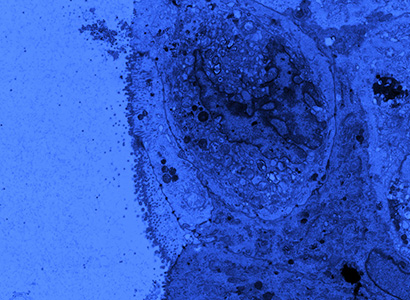Scottish universities at forefront of €78 million anti-Covid effort

The Universities of Dundee and Edinburgh are playing key roles in a €77.7 million pan-European consortium seeking to accelerate the development of therapies for Covid-19 and future coronaviruses.
- CARE (Corona Accelerated R&D in Europe) is the largest undertaking of its kind dedicated to discovering and developing urgently needed treatment options for Covid-19
- The initiative is committed to a long-term understanding of the disease and development of therapies for Covid-19 and future coronavirus threats in addition to urgent efforts to repurpose existing therapies for a potential immediate response
- The CARE consortium will accelerate Covid-19 R&D by bringing together 37 teams from academic and non-profit research institutions and pharmaceutical companies into a comprehensive drug discovery engine
CARE (Corona Accelerated R&D in Europe) is a 5-year project bringing together the expertise of 37 partners across the continent, as well as China and the US, to form a comprehensive drug discovery engine. The project is funded by the Innovative Medicines Initiative (IMI), a partnership between the European Union and the European pharmaceutical industry.
Scotland-based researchers – with vast experience of studying coronaviruses – have become part of an international partnership that will analyse more than half a million potential drug candidates, they are the only UK-based academic partners.
The consortium will build on previous research into drugs used to treat the common cold coronavirus and SARS coronavirus-2 (SARS-CoV2) – the virus that causes Covid-19.
Crucial insights gained in earlier studies mean drugs that are found to be effective treatments for Covid-19 could quickly be trialled on patients.
The University of Edinburgh team hopes to identify a drug that will block human proteins needed by SARS-CoV2 to survive in the body.
As there are many clinically available drugs which target human proteins, these can be easily tested against Covid-19, and quickly repurposed if successful.
Dr Christine Tait-Burkard, Principal Investigator at the University of Edinburgh’s Roslin Institute said, ” We have been researching coronaviruses for many years. This, combined with the knowledge we have amassed on SARS-CoV2 in recent few months, makes me confident of success.”
The team will carry out lab investigations of new drugs that have yet to be used clinically. Those that show most promise will go on to be tested in animal studies and eventually clinical trials.
The University of Dundee’s expertise in drug discovery will be deployed in the quest to find antiviral treatments for Covid-19 and future coronaviruses.
Using individual compounds identified by other members of the consortium partnership, Dundee’s Drug Discovery Unit (DDU) will work to develop candidate drugs they hope will inhibit the development of the disease.
Some 37 academic and industry partners from 11 countries will be involved the Corona Accelerated R&D in Europe (CARE) consortium.
The project is funded by the Innovative Medicines Initiative, a partnership between the European Union and the European pharmaceutical industry.
The 515,850 drug candidates to be tested will be provided in kind by organisations that have been working on treatments against infections with SARS-CoV2 and other common cold coronaviruses.
Professor Jurgen Haas, Head of Infection Medicine at University of Edinburgh said, “ Covid-19 is a global problem that requires a global solution. By working with many other organisations across the world, we hope to reduce the time needed to develop a new treatment for this disease.”
We are in the early stage of what will be a long-term fight. The virus that causes Covid-19 can only replicate by taking over the machinery of a host cell. In doing so it prevents the host cell from working properly, causing organ damage. We are therefore looking for candidate drugs that can stop Covid-19 from infecting new cells or replicating once it has infected the cell.



